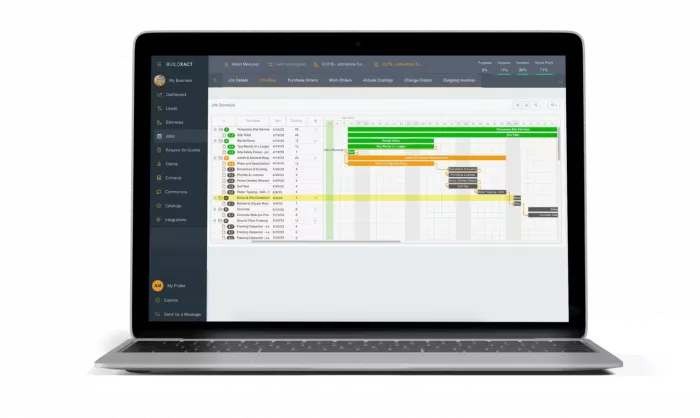Winning work in today’s building industry comes down to more than price alone. Clients expect professionalism, speed, and clear communication—often from the very first interaction. For small to medium builders, having the right tools to craft competitive, accurate, and timely bid proposals can be the difference between winning the job or missing out.
That’s where construction software plays a crucial role. By streamlining how quotes are built, documents are shared, and project timelines are planned, builders can present more polished bids—and do it faster than their competitors.
Why Bid Proposals Matter More Than Ever
Clients don’t just look at the bottom line. They want to see that a builder understands the scope, has thought through the project timeline, and can deliver within budget. A vague or delayed quote can leave the wrong impression, even if the builder is capable.
Clear, well-structured proposals show that you’re organised, transparent, and ready to get moving. The easier you make it for clients to understand the value you’re offering, the more likely they are to sign on.

Speed Without Sacrificing Accuracy
Manually building quotes using spreadsheets, supplier emails, and printed plans takes time—and leaves room for error. When you’re pricing multiple jobs or working to tight deadlines, it’s easy to miscalculate or miss important details.
With construction software, builders can access item libraries, reuse templates, and pull data from past jobs to price new projects more efficiently. This improves consistency and saves hours of admin work.
Importantly, it also allows for faster turnaround. Being able to respond to enquiries quickly—without compromising on detail—helps builders get ahead of others still working through manual processes.
Professionalism That Stands Out
Beyond numbers, the presentation of a bid matters. A well-formatted proposal with itemised costs, clear allowances, and breakdowns of what’s included gives clients confidence in your process. It signals attention to detail and professionalism—traits that homeowners and developers value highly.
Construction software allows builders to customise quote templates, add branding, and attach supporting documents or schedules. These finishing touches help set your bid apart from others that might be harder to interpret or missing important information.
Supporting Your Pricing with Scheduling
Clients often ask how long a job will take—and rightly so. Linking your bid proposal to a clear project timeline can boost its impact. It helps clients visualise the stages of construction and understand how the project will be managed from start to finish.
This is where using a construction scheduling platform can add a competitive edge. Builders can create visual Gantt charts or milestone-based timelines and include them in proposals to demonstrate foresight and planning. Clients appreciate this level of preparation and transparency—it shows you’re not just thinking about cost, but delivery too.
Handling Variations and Allowances with Clarity
Custom builds and renovations often include selections or variables that aren’t locked in at the quoting stage. Managing these through clear allowances and detailed breakdowns helps avoid misunderstandings later.
Construction software enables builders to include selections with clear cost brackets, as well as variation terms. When a client decides to upgrade or change an item, it’s easy to issue an updated quote or variation document without redoing the entire bid.
This kind of flexibility, paired with professionalism, reassures clients that you’re prepared for changes—and can manage them efficiently.
Reducing Rework and Miscommunication
When pricing a job manually, even small errors can create confusion and delays. A missing line item or incorrect markup might seem minor, but it can raise red flags for clients or force you to revise your proposal at the last minute.
By using software to build your proposal, calculations are automated, margins are consistent, and figures are linked across documents. This reduces rework and ensures that the numbers you present are accurate from the start.
Staying Organised Across Multiple Bids
For builders quoting several jobs at once, staying organised is half the battle. It’s easy to lose track of which proposal was sent, when it was last updated, or what version a client is referring to.
Construction software helps centralise all project data. Quotes are saved with timestamps, client notes are recorded, and proposal statuses are easy to view. This makes it simpler to follow up, adjust pricing if needed, and close jobs faster.
Conclusion
In a competitive building market, how you present your bid can be just as important as the number you attach to it. Construction software gives small to mid-sized builders the tools to price accurately, communicate clearly, and respond faster—while maintaining a professional edge.
By incorporating structured timelines, detailed selections, and clean formatting, your proposals won’t just stand out—they’ll win more work. And the best part? Once the job is won, those same tools help you manage delivery with just as much efficiency.
Post Comment
Be the first to post comment!





